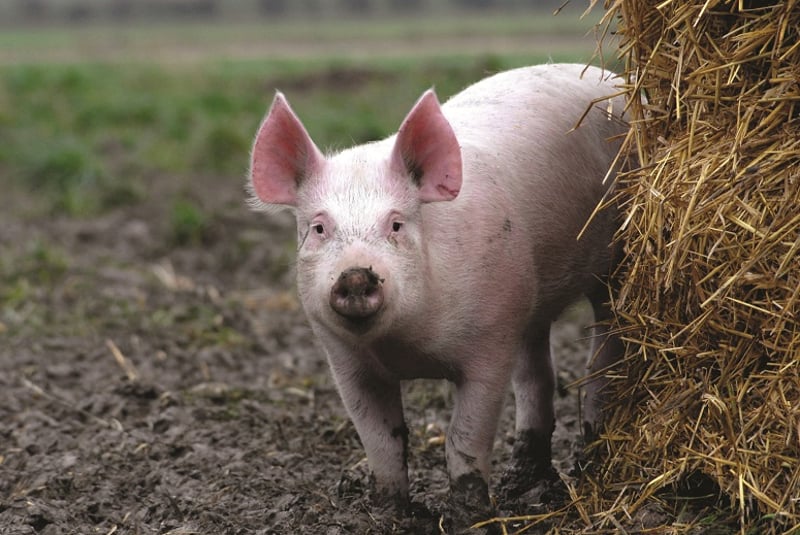
Pigs’ welfare top of agenda for animal welfare charity in China and Latin America
Press release
Millions of pigs in China, Brazil and Chile are set to have better lives as global animal welfare charity World Animal Protection works to improve animal welfare practices across the globe following the launch of a new campaign and the signing of a landmark agreement.
The treatment of farm animals is the world’s biggest animal welfare issue – and it’s getting bigger. More than 70 billion animals are farmed for food each year, two-thirds of them in conditions that mean they can’t move freely or live naturally.
China is home to over half of the world’s pig population, and demand for pork has meant many food suppliers are overlooking animal welfare in favour of low cost meat – resulting in the suffering of millions of pigs every single day, with sows confined in crates or cages for most of their lives.
Last week in Beijing, World Animal Protection signed a landmark statement of intent with Da Bei Nong, one of China’s leading agricultural producers, and the International Cooperation Committee of Animal Welfare (ICCAW).
Da Bei Nong, with guidance from World Animal Protection and the ICCAW, will start a trial of higher animal welfare production for pigs this month and will scale up from 2018. As the company embarks on ambitious expansion plans, the move is set to change the lives of millions of pigs with the introduction of group housing for sows and reduced stocking density for growing pigs, with all animals provided with effective enrichment and comfortable flooring
The move by Da Bei Nong, which currently has 60,000 sows producing upwards of a million pigs, demonstrates a shift in China’s pig industry, as more companies and organisations recognise the importance of higher animal welfare practices, and the positive impact it can have on production and sustainability for China.
Signing the statement, Zhao Zhonghua Country Director of World Animal Protection China said: “Better animal welfare not only alleviates suffering, it leads to healthier animals, safer food for consumers and sustainable profit growth for farmers and producers. It is a mutually beneficial choice for our pig industry.”
Mr Song Weiping, vice president of Da Bei Nong, said: “We are committed to the promotion of animal welfare, and to the production of high quality and safe pork for our customers.”
Xi Chunling, Chair of ICCAW concluded: “World Animal Protection is helping to develop high welfare solutions for China’s pig industry, aiding the development of the industry, creating better environments for farm animals, and ultimately helping to achieve better harmony between animals and people.”
In China, consumers are increasingly demanding higher welfare products. A 2016 survey by World Animal Protection found two thirds of Chinese people would be willing to pay more for higher welfare pork and 90% would be willing to change their purchasing habits, to move to pork products from pigs that have lived better lives.
On the other side of the world in Brazil and Chile, over 22,000 people have joined World Animal Protection’s campaign #ChangePigsLives which was launched last month pushing governments to legislate for higher animal welfare standards for pig production.
Brazil is the fourth largest pork producer in the world. While there has been recent progress by industry, over 42 million pigs continue to suffer with outdated and cruel practices in the country
Most sows will spend their entire lives in individual crates – a practice banned in the European Union and several countries. The Brazil and Chile campaigns are calling for group housed gestation; environmental enrichment; end of cruel mutilations on piglets, including the cutting of teeth, ears and tails with no anesthesia; and improvements on sheds’ density to avoid fights and spreading diseases.
ENDS
For more information or to arrange an interview please contact:
Jonaid Jilani, Global Media Manager
T. +44 (0) 20 7239 0500 // 0673
Zhao Zhonghua Country Director of World Animal Protection China said: “Better animal welfare not only alleviates suffering, it leads to healthier animals, safer food for consumers and sustainable profit growth for farmers and producers. It is a mutually beneficial choice for our pig industry.